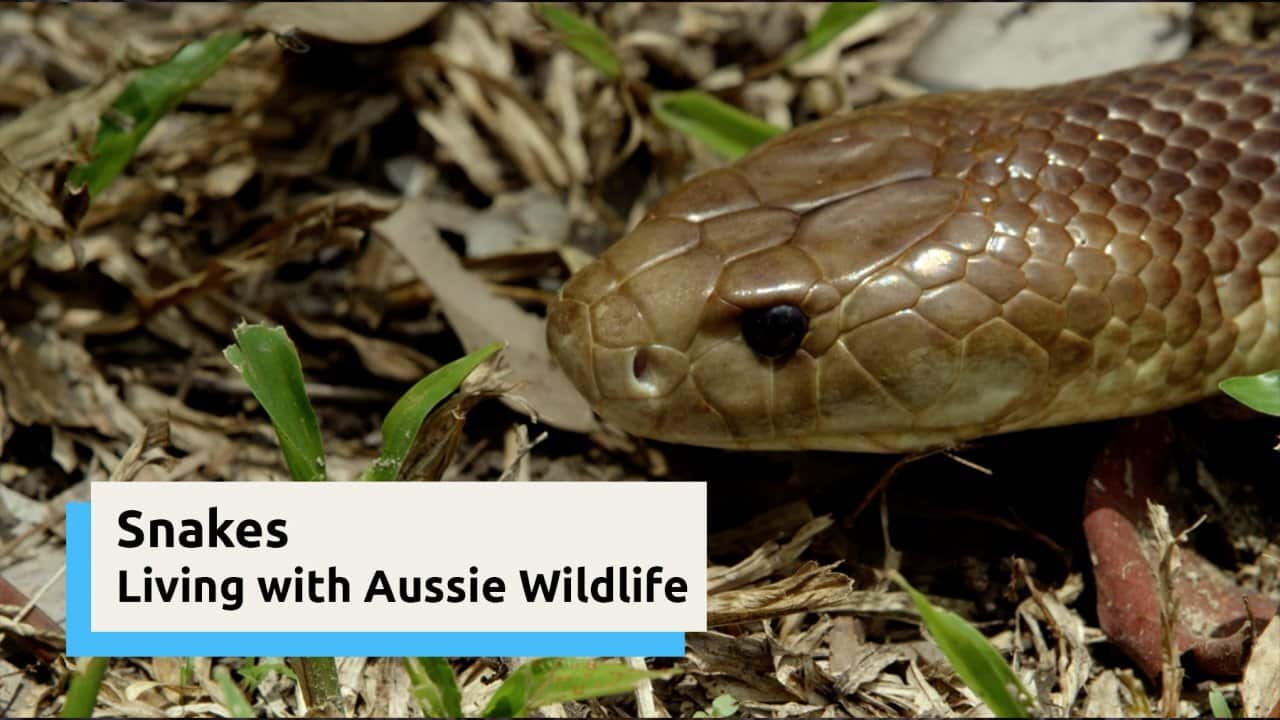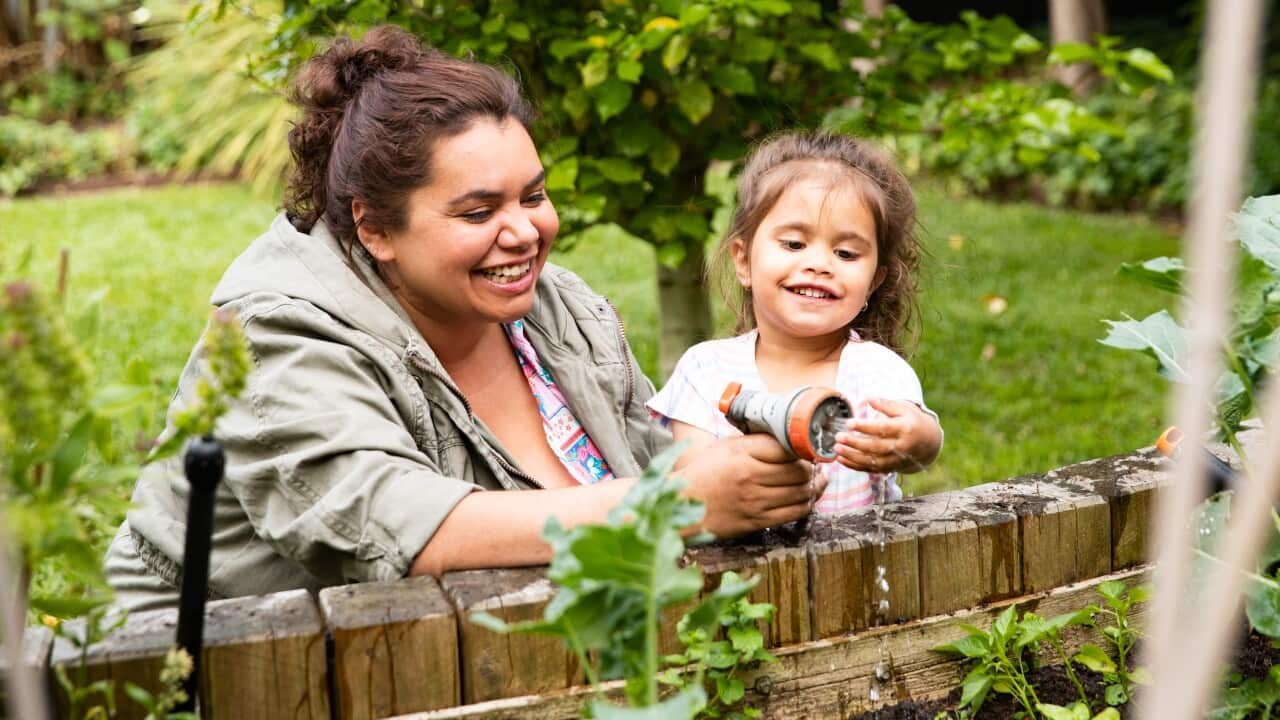Key Points
- A bite from any large black spider should be treated as a medical emergency
- Any snake bite must be treated as potentially life-threatening and apply a pressure immobilisation bandage as a key first aid step
- You can access emergency medical assistance anywhere in Australia, including remote areas
Australia has a fearsome reputation for venomous animals. But when it comes to spiders, there is only one species we need to be worried about, says the Medical Director of the NSW Poisons Information Centre, Darren Roberts.
“And that’s the funnel-web. Although there's a lot of talk about redback spiders being toxic, they can cause you to be unwell, [but] the chances of dying or even having severe poisoning requiring hospital admission are very low. All other spiders in Australia are generally considered to be low or non-toxic.”

Research has disproved previous concerns about redback spider bites. Although they contain venom, effects take hours to develop and do not require medical treatment, unless there are signs of infection or aggravated symptoms. Credit: Getty Images/Jenny Dettrick
Around 100 of the country’s 172 snake species are venomous, with showing an average of two deaths per annum.
“We know the snakes are found all around Australia, including where we live, and so it's likely that we will interact with them. But fortunately, snake bites, which cause problems are relatively uncommon,” says Dr Roberts.

“Snakes have very little reason to go into people's houses.” Professional snake catcher Gianni Hodgson says 90% of the calls he gets are for snake removals from a backyard. Credit: Getty Images/Andrew Balcombe / EyeEm
First aid for spider bites
While most spider bites in Australia cause minimal harm, it is important to know what to do in case you or someone else is bitten.
Dr Roberts says the advice for any spider bite, other than the funnel-web, is “to wash the area with some antiseptic, double check that your tetanus is up to date, and otherwise, it's a matter of just watching and waiting”.
In case of further symptoms or sings of infection, seek medical assistance.
Local pain is also common. Applying a cold compress or ice pack (wrapped in a clean cloth), directly over the bite site for 15 minutes can help relieve the pain.

Spider bites (other than the funnel-web) can be so delicate that people don’t feel it until later, Dr Roberts says. Credit: Getty Images/Stefania Pelfini, La Waziya Photography
Treat any big black spider bite or suspected funnel-web spider bite as a medical emergency and call an ambulance.
A funnel-web bite, will progress to things such as numbness around the mouth, possibly nausea and vomiting, abdominal or chest pain.Dr Shaun Francis, The Royal Flying Doctor Service, Queensland

Funnel-web spiders are found around Sydney and the east coast. Other big black spiders are found Australia-wide. Credit: Getty Images/Image Created by James van den Broek
- “Apply a pressure immobilisation bandage that is tied around the bite site and then up and down.
- The person needs to lie still until the ambulance arrives.
- Discourage them from walking around. That may speed up the venom moving around the body.”
Until the ambulance arrives, try to immobilise the bitten limb, ideally by splinting.

A pressure immobilisation bandage, not a tourniquet, is used for funnel-web spider bites as well as venomous snakebites to stop the venom circulation in the body. Credit: Getty Images/Lisa Maree Williams / Stringer
What happens if bitten in the outback?
Shaun Francis is a doctor at the Queensland branch of the Royal Flying Doctor Service, a not-for-profit provider of aeromedical transport, healthcare and 24-hour emergency services in Australia’s rural and remote communities.
Spider bites, Dr Francis says, are common in the outback and often the type of the spider causing the bite is not known.
Initially, there’s a degree of pain at the site, some redness and swelling which isn’t very specific to any particular type of bite.Shaun Francis, The Royal Flying Doctor Service, Queensland
The appearance of systemic symptoms, are indicative of envenomation and could trigger a health intervention with aeromedical transport of the patient, Dr Francis explains.
“When there's more than just pain, we start to get more concerned and that typically can start from sweating. A funnel-web bite, for instance, will progress to numbness around the mouth, possibly nausea and vomiting, abdominal or chest pain.
“That's a trigger for us to intervene and then escalate care, in comparison to a snake bite, where even in the absence of those symptoms, we would transfer a patient to definitive care,” Dr Francis stresses.

In the outback, all emergency calls for snakebites trigger a medical response for suspected envenomation. Credit: Getty Images/kristianbell
First aid for snake bites
Some snakebites are dry, meaning that the snake strikes but no venom is released.
But Dr Francis warns it can be dangerous to assume a snake bite is non-venomous. All instances of confirmed and suspected snakebites should be treated as potentially life-threatening.
Dr Francis outlines the three necessary steps:
- Apply a pressure immobilisation band
- Immobilise the bitten limb, ideally by splinting
- Call triple zero (000).
According to professional snake catcher Gianni Hodgson, even a non-venomous bite can cause problems.
“Pets might interact with them; children might get bitten. They’re non-venomous but they could have bacteria.”
What not to do when encountering a snake
Snakes are not likely to attack unless they feel threatened or scared. Most snake bites happen when people try to kill or capture a snake.
Thinking that a snake might chase you is a common misconception, Mr Hodgson points out.
The only time when you’ll have a snake coming towards you is when they’re trying to get to a safe place and you’re standing in their way. And half the time they don’t even know you’re there.Gianni Hodgson, professional snake catcher
Mr Hodgson shares some tips on what not to do when you notice a snake.
- “Don’t make big noises, simply because, if you're really close to it, that's going to set it into a defensive mode.
- Make yourself known by moving around and just back away from it.
- If you're standing on top of it accidentally just stay dead still. Let it move, it's going to keep on going on its way. It just hasn't noticed that you're there yet.”
Who to call if bitten
- If unsure what to do after a spider bite, call the nationwide Poisons Information centre helpline on 13 11 26.
- For all snakebites and any case of emergency, call triple zero (000).
- If you are far from a hospital, you can call the Royal Flying Doctor Service on 1300 My RFDS (1300 69 7337).










